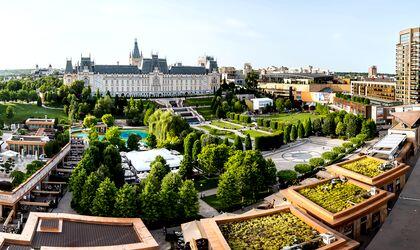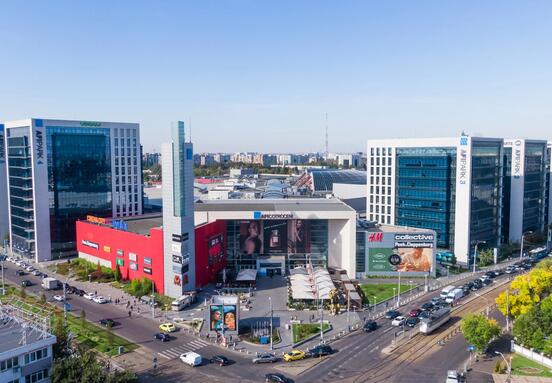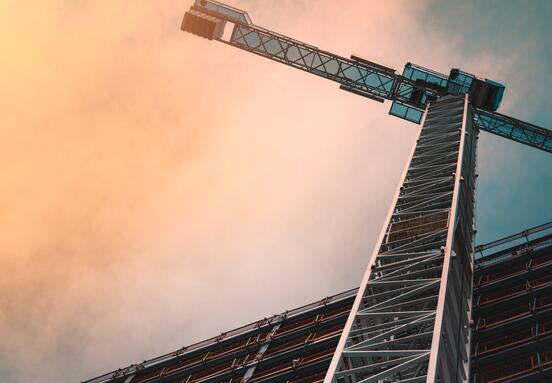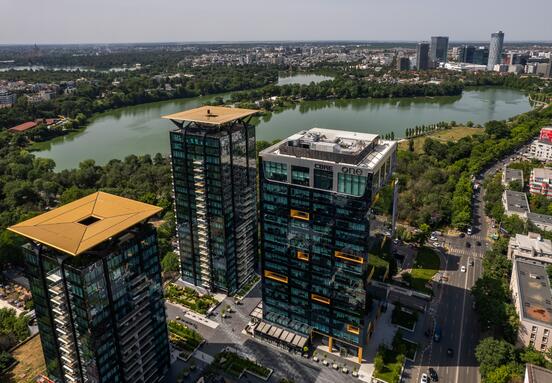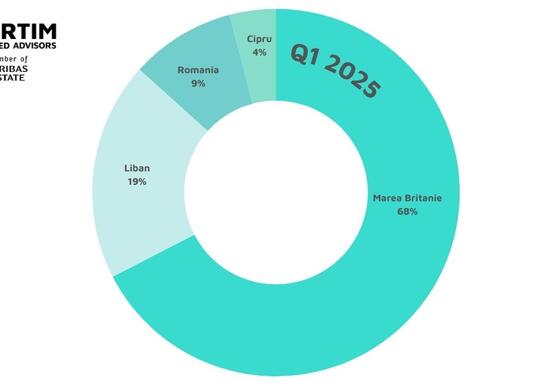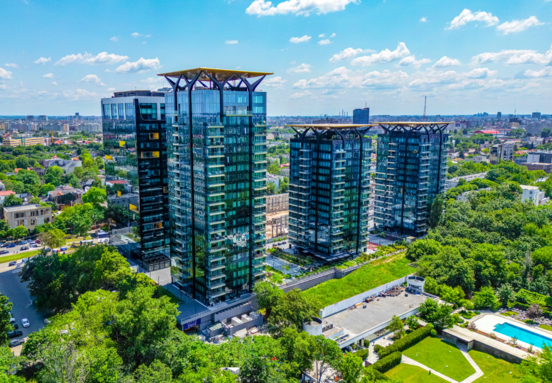The extensive certification process spanned over the course of seven years and was coordinated by the Colliers International consulting company.
Palas Iași was a premiere for Romania and it revitalized the city center, actively and constantly contributing to the economic, social and cultural development of the entire north-east region of the country. The LEED® for Neighborhood Development (ND) certification awarded by the US Green Building Council (USGBC) recognizes sustainable developments with impact in their community, designed for better connectivity and integration in the urban landscape, and Palas Iași is one of only five projects across Europe to be awarded this certification.
The Palas Iași development was closely monitored in the seven years of implementing the certification process, seeing the adoption of sustainability strategies in line with the strict requirements of the LEED® ND standard in the design and construction of the project comprised of 12 building blocks. The benefits for the community, the access to leisure facilities, its location and support for mobility (reduced reliance on personal vehicles) are only a few of the categories where Palas Iași got maximum scores and which led to it achieving the LEED® Neighborhood Development Silver certification.
“Eight years after its inauguration, Palas continues to be a landmark for the Romanian real estate. Palas is an integral part of the Iași city life and a destination with a regional impact. We are thrilled to be assigned this green project status, a rarity across Europe, which validates the sustainable vision underlying our investments and confirms that the project we imagined on paper almost a decade ago is just what we wanted: beneficial for the community, appreciated by the general public, and perfectly anchored in the life of the city. Palas is a project catering to the present and future of the region and it continues to generate development through all its components – office, retail, and entertainment”, said Iulian Dascălu, President of IULIUS.
“The LEED® ND standard was designed to inspire and to help create better, more sustainable and connected communities. The certification goes beyond the scale of the buildings, considering the communities as a whole. Palas Iași is the first LEED ND certified project in Central and Eastern Europe, which is an international recognition for the sustainable practices implemented here. We are delighted with the result we obtained and we are glad to have been a part of this project, a role model for active, healthy, and happy communities in a sustainably built environment”, said architect Tamara Dogariu, LEED AP ND, Green Certification Associate at Colliers International.
The certification covers the mixed-use Palas project in its entirety, analyzing its operating performances, along with the benefits for the community and in terms of saving resources. Moreover, the United Business Center office buildings UBC 1 and UBC 5 were awarded the LEED® Gold certification per the LEED standard for Existing Buildings: Operations and Maintenance.
Palas Iași provides a balanced living space for residents, encouraging walking in a safe, attractive, and comfortable urban environment. Concurrently, the project benefits from all the premises that converge towards the creation of a balanced urban community, by means of the diversity of uses and job opportunities located set in the proximity of dwellings. The large park at its core is not only the green heart of the project, but also creates the opportunity to aggregate social interaction, whether it be via outdoor leisure activities or the cultural events organized here on a regular basis.
As far as environmental sustainability is concerned, the whole project has a positive impact. At a global level, the buildings in Palas Iași show an improvement in energy efficiency by more than 20%, as well as a decrease in the annual water consumption by more than 40% compared to similar buildings. A further decrease by more than 84% in water consumption is achieved for outdoor features, by using an efficient irrigation system that collects and reuses rainwater, replicating the natural water cycle.(source: Iulius)
